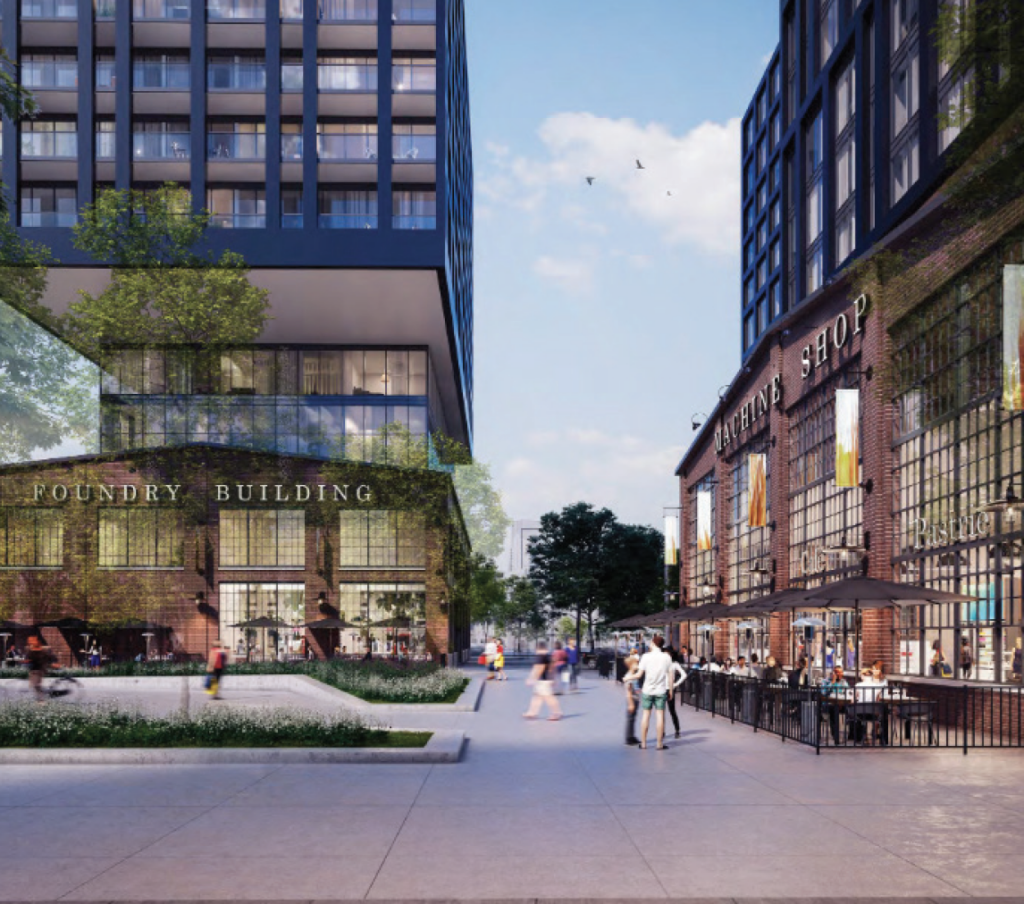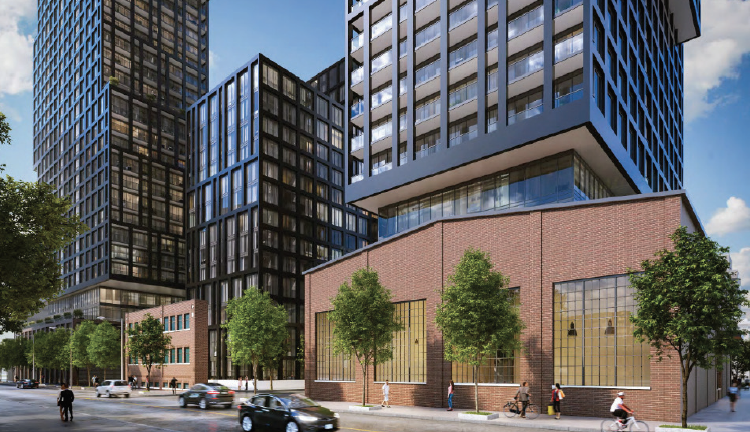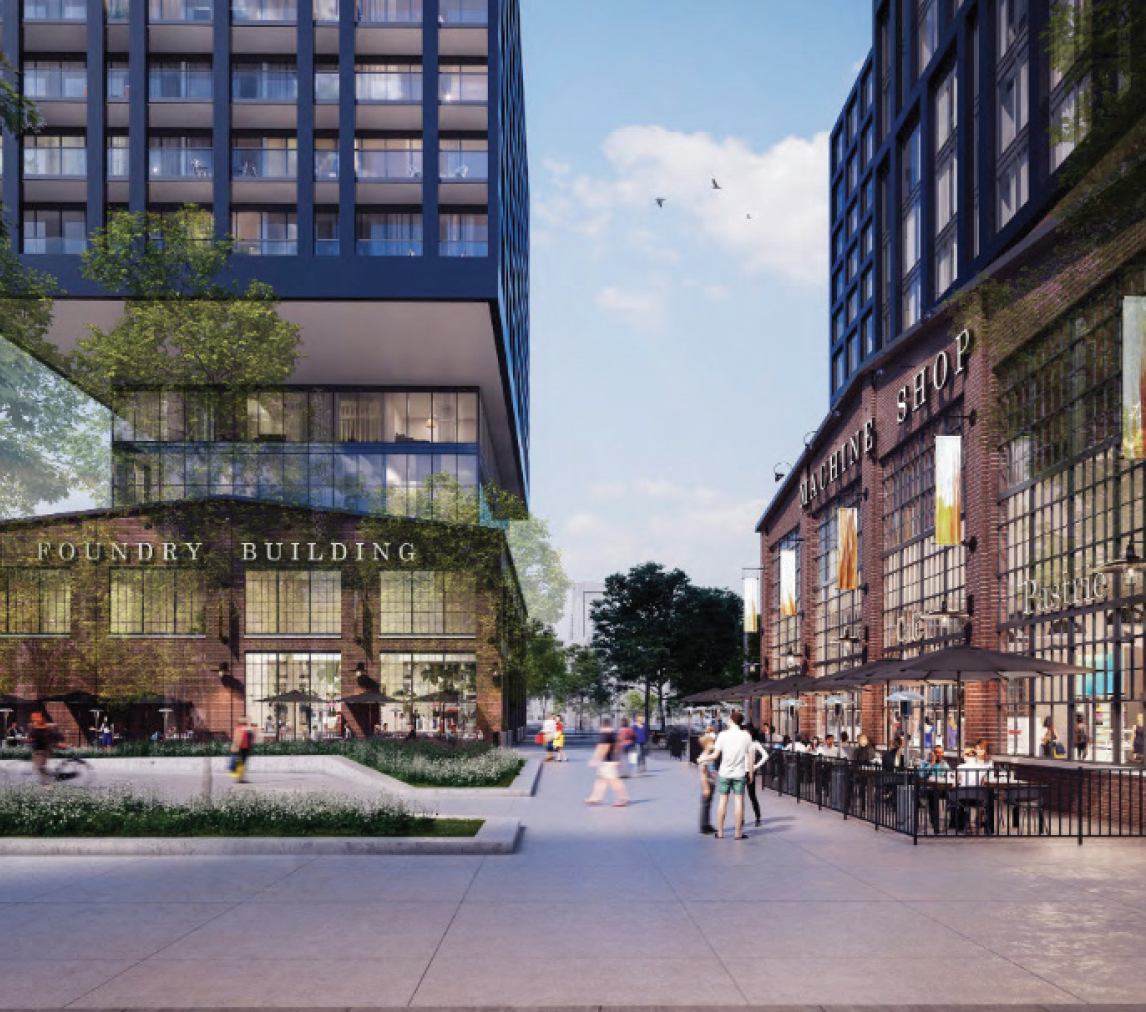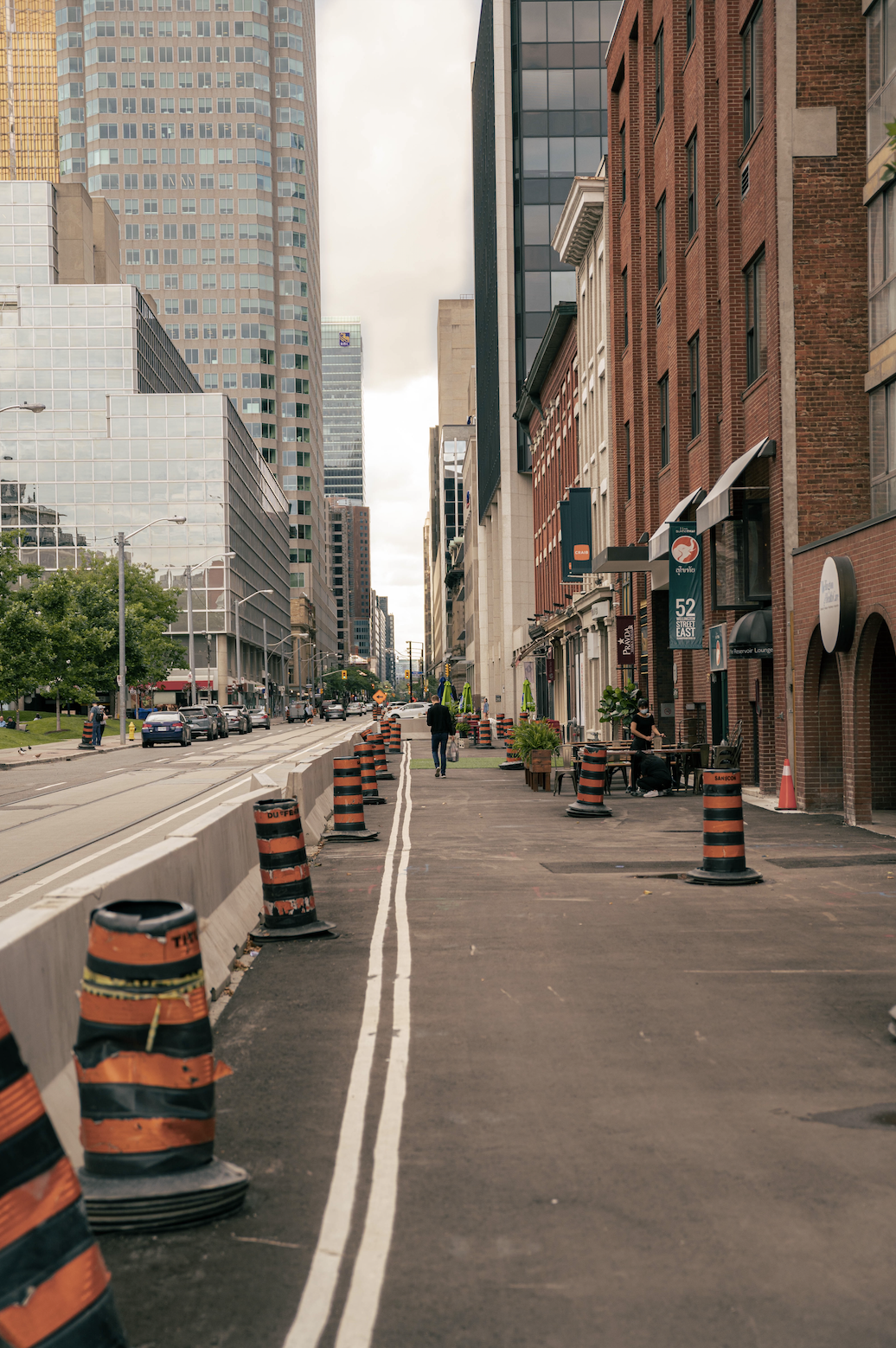
Julia Simioni, Senior Reporter
Two of the four provincially owned Dominion Wheel and Foundries buildings are to be saved under an agreement announced August 20 between the City of Toronto and the Ontario government.
In January the Foundry site, at 153 to 185 Eastern Avenue near Corktown Common, became the centre of a fight between the city, the province and community groups when a provincial crew began demolishing buildings with no notice. After residents won a temporary court injunction to pause demolition, the hearing was postponed to allow for consultations among the province, the city and the community.
Stewart Linton, president of the St. Lawrence Neighbourhood Association (SLNA), said he’s satisfied with the outcome. “We accomplished what we wanted in terms of stopping the wholesale demolition of the site.”
A cultural heritage report completed by the province, which it hadn’t done before starting demolition, found that the Foundry site meets the criteria for a provincial heritage property. The site “is the only remaining representation of an industrial complex associated with the theme of railway expansion (1920-1960) in the precinct,” the evaluation found. It “contributes to the understanding of the development of the area in the first part of the twentieth century into an industrial sector in the city that displaced housing for the expansion of the railway industry.”
A heritage impact assessment (HIA) said the province can preserve some of the site while constructing three highrise residential towers and demolishing two ancillary structures, the office building at 171 Eastern Avenue and the warehouse at 169 Eastern Avenue.
SLNA Development Chair Suzanne Kavanagh, also a member of the West Don Lands Committee and a spokesperson for the Friends of the Foundry community group, said she wasn’t disappointed to learn that those two buildings would be demolished. The heritage impact assessment recommendations “are very similar to the concept that [SLNA] and [the West Don Lands Committee] presented to the government,” she said.
The HIA also recommends that the province not demolish the 1953 cleaning building, the 1935 and 1939 machine shop buildings and 1940s additions, and should hire a qualified heritage consultant to oversee the demolition that does occur.
New deal applauded but some expressed disappointment

Any developer who purchases the property from the province will have to agree to a Heritage Conservation Agreement, the HIA says.
“The city and the province are committed to ensuring that any future purchasers of the property respect the vision for its redevelopment,” according to a City of Toronto statement.
“In the event that the property becomes privately owned, the city has the option to designate it under Part IV of the Ontario Heritage Act, as well as having the future owner enter into a Heritage Easement Agreement (identifying elements of the buildings that must be retained and what changes and types of development may be allowed), as a condition of future planning approvals.”
The city will decide if it wants to seek formal heritage designation for the properties. Concept images by CORE Architects show how the Foundry’s heritage attributes could be incorporated into a new development that includes affordable housing.
“In a separate Provincial Contribution Agreement, the Province will bind any future potential purchaser to provide much needed affordable housing. This will meet the City’s requirement that 30% of the gross floor area would be dedicated to affordable rental units,” says the HIA.
Kavanagh says that once a developer is selected by the province, she’s looking forward
to having them work with the community and hopes to sit down with the developer and “get into some of the more nitty-gritty things around site plan application, the materials, the public realm, and the community space.”
While some community members applauded the new deal on social media, others expressed disappointment.
“Saving a couple of outer walls, 2 buildings completely demolished, and adding a 141-metre tower – I won’t be celebrating this as any kind of ‘victory’ #disappointing,” said Twitter user @barkoh.
“This is all great news as far as the Foundry is concerned. But as far as the community is concerned, the province, city and developers get what they want,” tweeted @wmcwonca.
“The people of Corktown get nothing for all our trouble. Our wishes have been once again ignored.”
Community activists said that they are not opposed to building affordable housing on the site as long as it maintains the heritage components of the property.
“We succeeded in preventing the complete demolition of the #FoundrySite!” tweeted the
Friends. “The Province is now pivoting to an adaptive-reuse approach to the Foundry.”
The group called the deal “a big step forward.”
Both Kavanagh and Linton said this outcome shows that communities need to speak up.
“The big lesson with the Foundry is that the community has put [the province] on notice,” said Kavanagh. “They’re actually starting to dial back some of their other provincial projects.”
“This story demonstrates that there is still a bit of a David-and-Goliath opportunity in residents and citizens expressing opinions that are meaningful to them and actually being heard,” said Linton.




